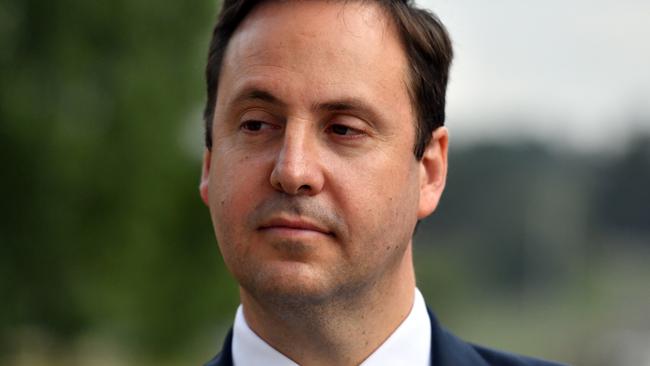Living standards leap as Asia free-trade deals deliver
Australia’s standard of living is rising on the back of record exports.

Australia’s standard of living is rising on the back of record exports, with unprecedented gains being delivered through the farm gate under free-trade deals struck with China, Japan and South Korea.
Exclusive Department of Foreign Affairs and Trade figures — the first economic assessment of the three agreements — show more than $1.5 billion has been added to the value of six key commodities in just two years as a result of the FTAs.
The rapid expansion of goods exported to the three key trading partners represents a 140 per cent rise since 2014, with 90 per cent of the $135bn of goods exported annually to those countries now subject to lower tariffs.
Trade Minister Steve Ciobo told The Australian that the FTAs were already delivering a domestic economic dividend, with the general export sector underpinning a 5 per cent rise in real disposable income, the measure of the standard of living, in the December quarter. “With the acceleration in export values and volumes, we’re also seeing acceleration in our standard of living,” he said.
“The three FTAs are underpinning a surge in exports which is driving Australia’s economy and job opportunities These landmark agreements are fuelling growth in Aussie exports, which is creating Aussie jobs.
“At a time when some are calling into question the benefits of international trade, opening new markets through trade agreements is more important than ever. Trade agreements have unlocked the door to new markets that are worth billions of dollars.”
Scott Morrison said there would be a net positive for the May budget in a higher stream of income revenue from export-driven businesses.
The first broad assessment of the agreements signed under the Abbott government reveals that among six star performers, export volumes had soared. While a lower exchange rate and rising demand in Asia had contributed to the higher prices and volumes, the FTAs had lowered the barriers to entry.
The value of chilled and fresh beef exports, for example, had risen 33 per cent and was now worth $1.56bn a year.
Australian wine exports to the three largest Asian economies had risen 120 per cent to a value of $518 million, while exports of oranges had surged 97 per cent overall and 1122.1 per cent to Korea.
High-volume sugar exports had risen 120 per cent under the Japan and Korea FTAs, with annual one-way trade worth $1.2bn. Grape exports, which had come from a low base, had risen by 10,950 per cent for the Japan and China markets since the start of the agreements.
Almost half of the economic growth forecasts for Australia will be delivered through exports this year, with agriculture now the fastest-growing sector, expanding 23.7 per cent in the December quarter and 8.3 per cent through last year. In the December quarter national accounts, exports grew by 2.2 per cent to be 8.9 per cent higher over the year.
“The boost in incomes flowing from these agricultural results is finding its way into our towns and regional centres, as the cash makes its way through these local economies,” the Treasurer said.
“For the third successive quarter, we had an increase in the terms of trade, on this occasion by just over 9 per cent, the largest quarterly growth since June 2010.
“Real net national disposable income or, in other words, living standards, rose by 2.5 per cent in 2016, with an especially strong result in the December quarter where the agricultural sector made such a significant contribution,” he said.
A report by the Chief Economist in February said export businesses were now delivering higher wage growth than other sectors. However, Mr Ciobo said the number of Australian businesses not engaged in Asia was “alarming”.
“A (PwC) study found that only 9 per cent of Australian businesses are currently operating in Asia, and nearly 65 per cent have no intention of changing their stance in the next two to three years,” he said.
“This statistic is worrying. It’s why the Turnbull government is working to negotiate new access, new rules, and is pushing Australian businesses to seek out and use these opportunities as a pathway to growth opportunities.”
Australia is the only major agricultural exporter to have an FTA with Japan, giving Australian exporters a significant advantage and eliminating more than 3000 tariffs.
Opposition trade spokesman Jason Clare said: “This is Malcolm Turnbull trying to take credit for Tony Abbott’s work.”





To join the conversation, please log in. Don't have an account? Register
Join the conversation, you are commenting as Logout